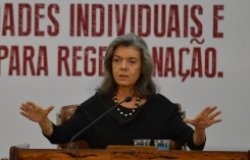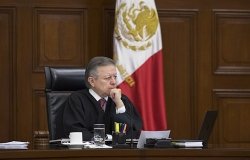Justice Fachin to Lead "Car Wash" Probe Cases

Justice Edson Fachin, of the Brazilian Supreme Federal Court (STF), has replaced the late Justice Teori Zavascki as rapporteur of the ongoing federal criminal investigations on massive corruption involving dozens of Brazil's business executives and politicians, including CEOs of major construction companies and leaders in the country’s executive and legislative branches. Fachin’s selection, drawn randomly from among five Supreme Court justices, was praised by Federal Judge Sergio Moro, who has led the probe since its beginning in March 2014.
“Justice Fachin is a highly qualified judge and has acted with efficiency and independence [in the Supreme Court],” said Judge Moro in a statement. A native of Rio Grande do Sul, Fachin was the last justice nominated to the Court by President Dilma Rousseff, in April 2015. She was impeached and removed from office in mid-2016 for violating budget and fiscal laws unrelated to the corruption case.
Zavascki died on January 19 in Paraty, a historic seaside town on the southern coast of Rio de Janeiro, when a small plane crashed while approaching the landing strip. Investigations by the Brazilian Air Force have indicated no foul play was involved in the tragic event.
The corruption probe has transfixed Brazil and added to the economic and political crisis the nation has endured in the past two years. The investigations, known as Lava Jato ("Car Wash" in English), have focused so far on illicit activities by private sector executives, who stand accused of conspiring with public sector officials and well-placed politicians to manipulate public bids on contracts with oil giant Petrobras and state owned companies. More than 250 people have been indicated so far for crimes involving price fixing, kickbacks, money laundering, and tax evasion. Close to 200 were found guilty and have served or are serving jail sentences. Under Fachin’s supervision, the case will focus this year on some three dozen members of Congress who are under investigation. Under the Brazilian Constitution, federal elected officials can be examined only when authorized by the Supreme Court. In his first statement as rapporteur of Lava Jato, Justice Fachin said he would act “with speed and transparency.”
His task has been made easier by the decisions of Carmén Lúcia Antunes Rocha, the Chief Justice of Brazil’s Supreme Court, following Zavascki’s death. With the Court’s summer recess until January 31, Carmén Lúcia used her authority as Chief Justice to approve pending plea bargain testimony of 77 executives from the construction conglomerate Odebrecht in connection with the corruption investigations. Many feared Zavaschi’s death would delay the plea bargain process and leave the investigations without a captain at the Supreme Court.
The Lava Jato criminal investigations enjoy broad popular support. Attorney General Rodrigo Janot last week urged the Court to move forward without delay. Zavaschi’s team, ordered to continue their work by Chief Justice Cármen Lúcia, formally submitted the final testimonies for approval on January 27.
Leaks over the last several months suggest that among those implicated in the plea bargain testimony are President Michel Temer (for alledgedly receiving illegal campaign contributions), former Presidents Dilma Rousseff and Luiz Inácio Lula da Silva, the former Head of Senate Renan Calheiros, Senator Romero Jucá, Governor of São Paulo Geraldo Alckmin, and Minister of Foreign Relations José Serra. Odebrecht and its subsidiary Braskem have already pleaded guilty to violating the U.S. Foreign Corrupt Practices Act. In December, the companies agreed to pay $3.5 billion to the Brazilian, U.S., and Swiss governments in compensation for their role in the kickback scheme centered on Petrobras—the largest settlement on record in a corruption case. The Odebrecht testimonies are likely to lead to a new round of investigations with major ramifications for those implicated in a volatile case that has already had profound consequences in Brazil and abroad. Yet not all are negative: one consequence has been the assertion of the rule of the law in a country notorious until recently for the impunity enjoyed by criminals in high ranks.
About the Author


Brazil Institute
The Brazil Institute—the only country-specific policy institution focused on Brazil in Washington—works to foster understanding of Brazil’s complex reality and to support more consequential relations between Brazilian and US institutions in all sectors. The Brazil Institute plays this role by producing independent research and programs that bridge the gap between scholarship and policy, and by serving as a crossroads for leading policymakers, scholars and private sector representatives who are committed to addressing Brazil’s challenges and opportunities. Read more









